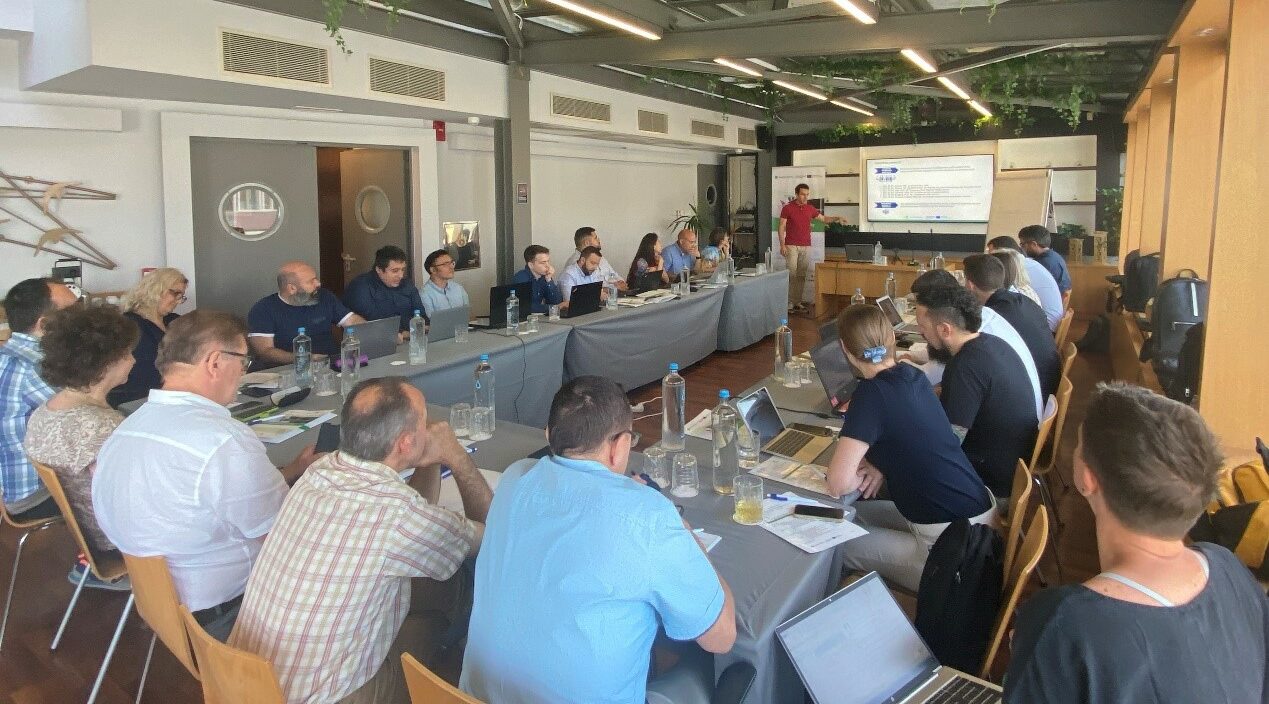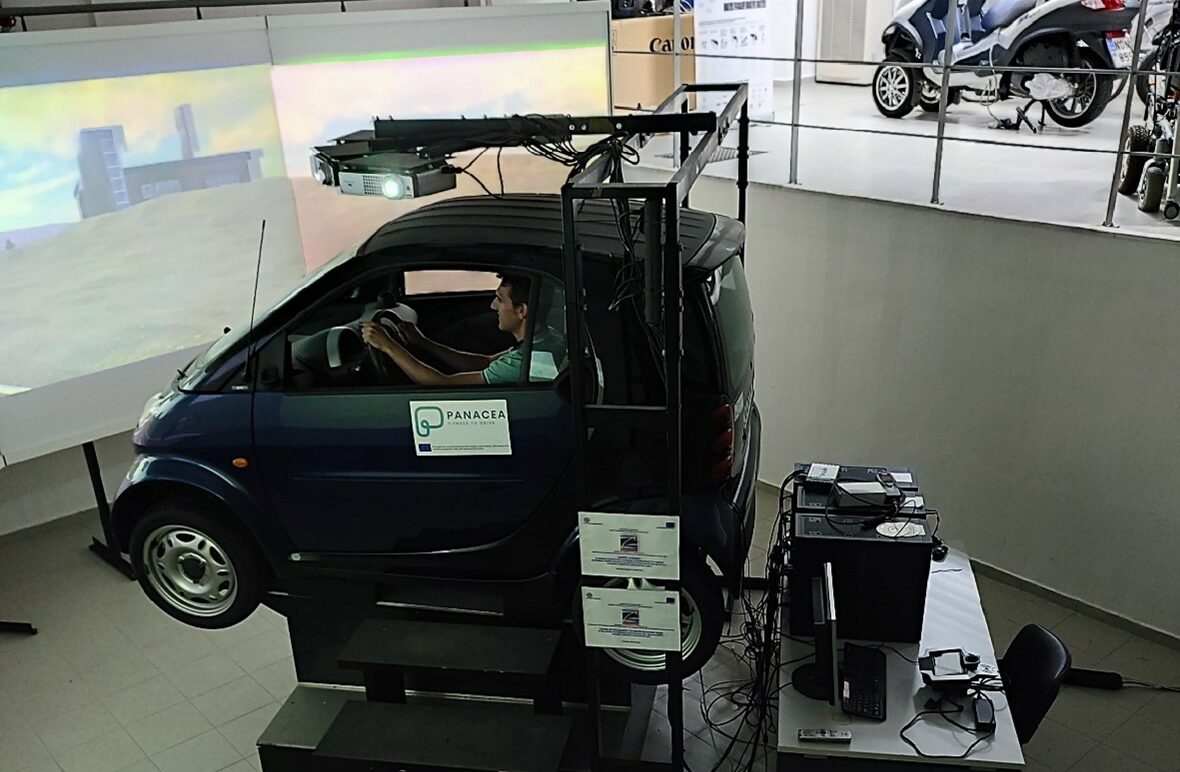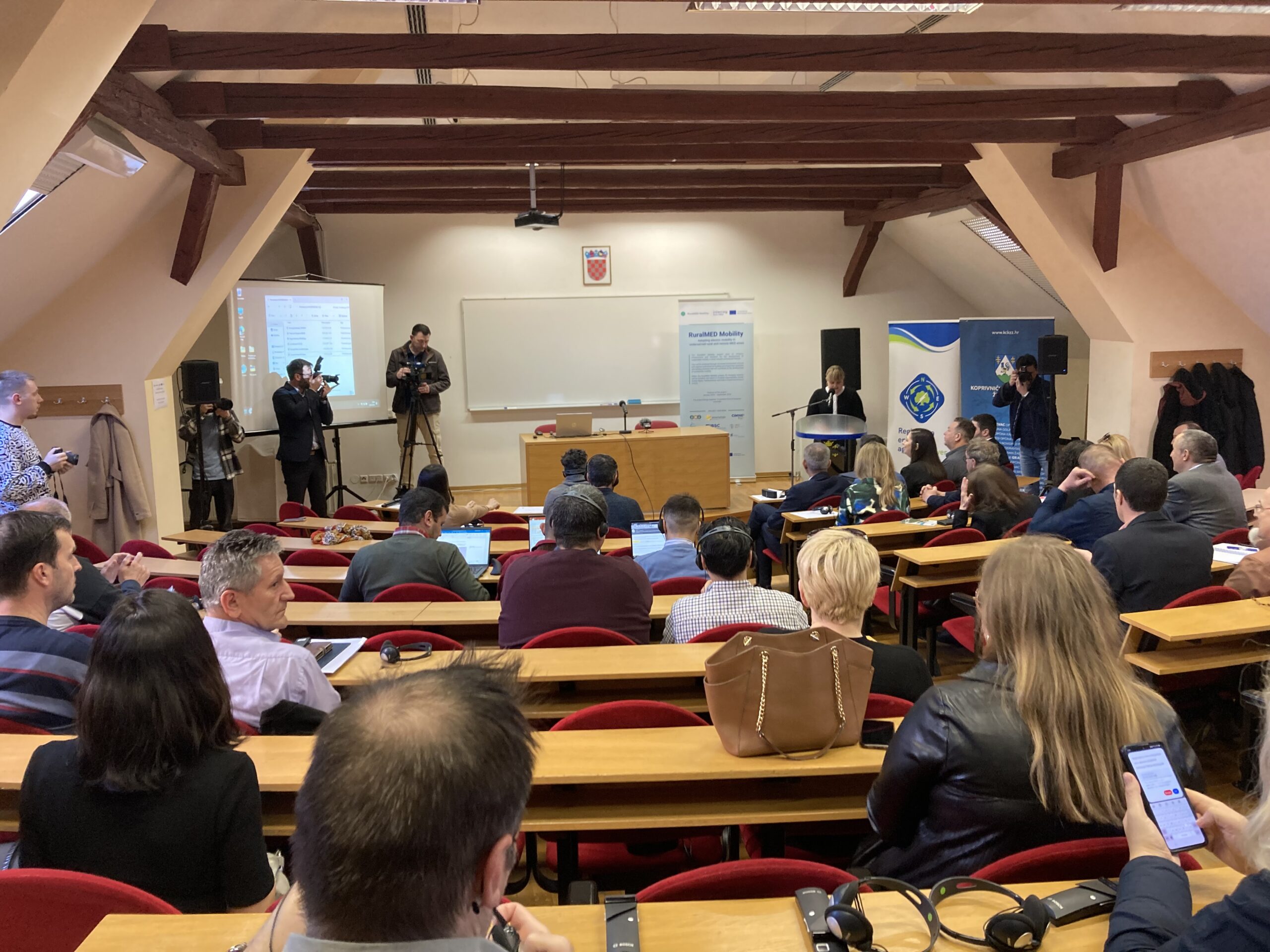
The Centre for Research and Technology Hellas (CERTH) organized the 2nd Steering Committee meeting of the RuralMED-Mobility project on 2nd and 3rd July in Thessaloniki, Greece. The event brought together project partners from 8 European countries (Spain, Portugal, Italy, Greece, Bosnia and Herzegovina, Slovenia and Croatia). All the partners had, at least, one representative in the meeting.
During the first day, partners reviewed previous administrative tasks and financial management to ensure transparency. They also discussed key strategies on communication and dissemination to enhance the impact of the project. The agenda for the upcoming Steering Committee and Task Force meetings was set.
A significant highlight was the presentation by PP13-CIMNE, which detailed the features of the RuralMED Mobility Platform. Following this, Dr. Dimitris Margaritis from Hellenic Institute of Transport (CERTH/HIT) provided valuable insights into E-Mobility collaborations. RuralMED continues to advance, driven by the dedication of all partners.
Exploring innovations at CERTH/HIT
The second day featured a study visit, organised by CERTH/CPERI, to CERTH’s research facilities at 6th km Charilaou – Thermi Rd, Thessaloniki. All partners had the exclusive opportunity to learn from Dr. Dimitris Margaritis’ lecture at the CERTH/HIT on E-mobility. The session began with an introduction to HIT’s advanced driving simulator.
Additionally, partners explored the CERTH/HIT Mobile Environment and Traffic Measurement Laboratory, featuring a mobile unit (minivan), and the HIT Transport Observatory and Data Management Portal. The insights gained on E-mobility were invaluable for all of them.
As the RuralMED-Mobility project continues to progress, partners are eager to build on the knowledge shared during this meeting. The next gathering is already planned for February in Italy.
RuralMED Mobility project gathers 13 European partners with the aim of adopting electric mobility in underserved rural mediterranean areas. RuralMED is a project approved in the 2nd call of the Interreg Euro-MED Programme 2021-2027, co-funded by the European Union.



